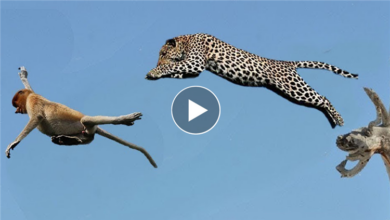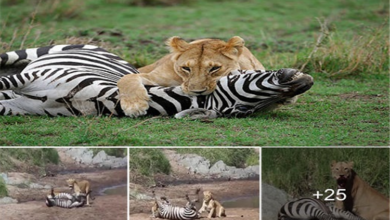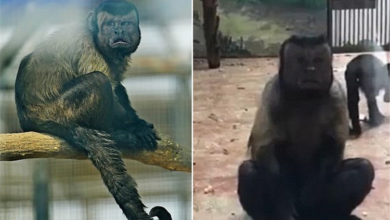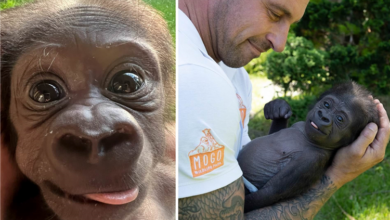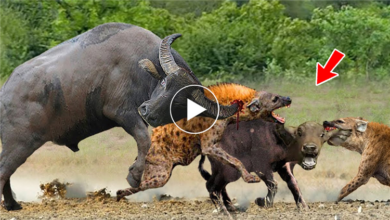Someone Dyed These Baby Monkeys Blonde To Make Them More ‘Attractive’
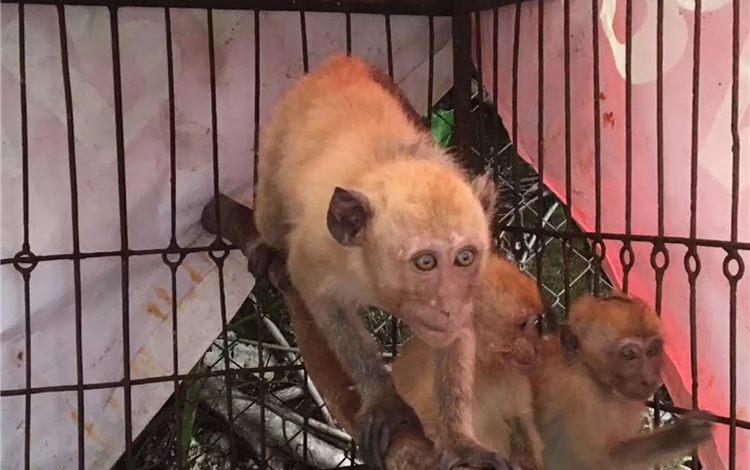
In a tiny village in East Java, Indonesia, a cage stood at the edge of a road. Inside were three 6-month-old baby monkeys who were very sick and very scared.
“They were captured from the forest, and in the process their mothers were killed,” Femke Den Haas, founder of Jakarta Animal Aid Network (JAAN), an animal rescue group in Indonesia, told The Dodo. “Then the person who shot the mothers sold them to the person selling them on the side of the road.”

The babies were long-tailed macaques, who are commonly found in the local area. But the seller had done something to make the monkeys seem more unique and desirable as pets — he’d bleached their brown fur with peroxide to turn it blonde.
Sadly, this isn’t the first time this has happened, Den Haas
explained.“They [the traffickers] always bleach the monkeys to make them look more interesting and like another species such as the Javan leaf monkey, which is a protected species,” Den Haas said. “It’s to make them more attractive and expensive.”
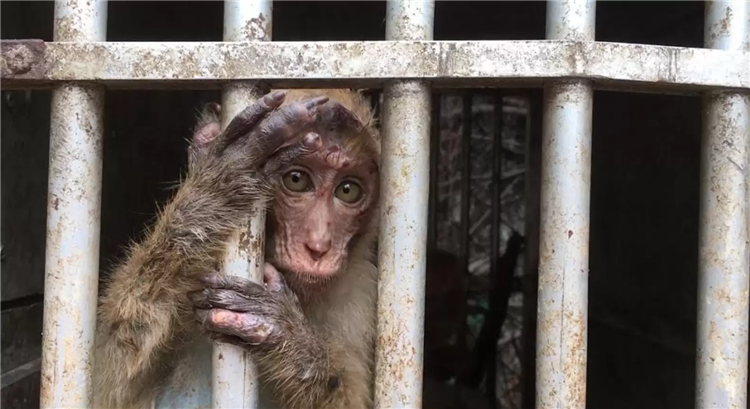
But the bleach did more than dye their fur — it also burned the babies’ skin, causing painful wounds.
The traffickers also used pliers to clip the baby monkeys’ teeth to make them easier to handle, Den Haas explained. But this had put the tiny animals through an enormous amount of pain.
“Their teeth have huge problems,” Den Haas said. “They’re all infected and it would be very painful to them. Some were still bleeding as the teeth were recently cut.”

“Their health is very poor,” Den Haas added. “They’re skinny and filled with worms, and they have infections.”
The monkeys also have trauma wounds and broken bones, which were probably inflicted during their capture from the forest.

But thankfully, the baby macaques, now named Ozzie, Olin and Oki, never ended up as people’s pets. Upon finding them on the roadside, officers at the forestry department in Surabaya confiscated them and transported them to a rehabilitation center, where they were immediately given medical care.
Macaques are not a protected species in Indonesia, so it’s technically legal to buy and sell them as pets, Den Haas explained. However, sellers need special permits to capture them from the wild and sell them — and since these babies had been captured without a permit, officials were able to save them.
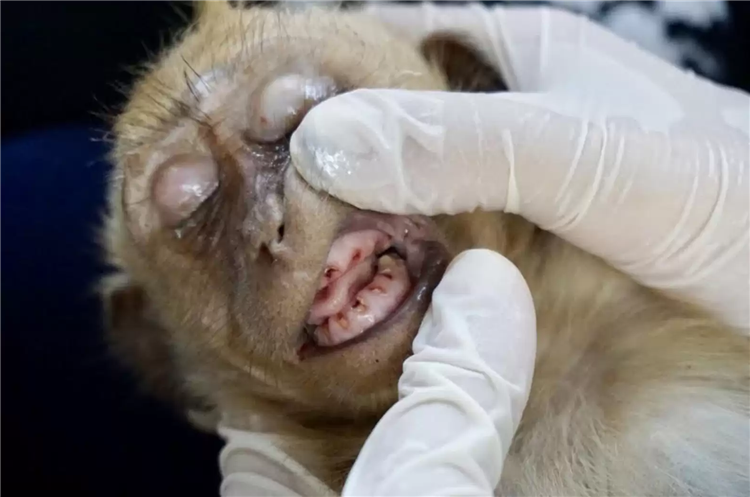
Despite their current poor health, Den Haas believes Ozzie, Olin and Oki will make a full recovery and may be able to be released back into the wild.
They’ll even grow in new teeth.
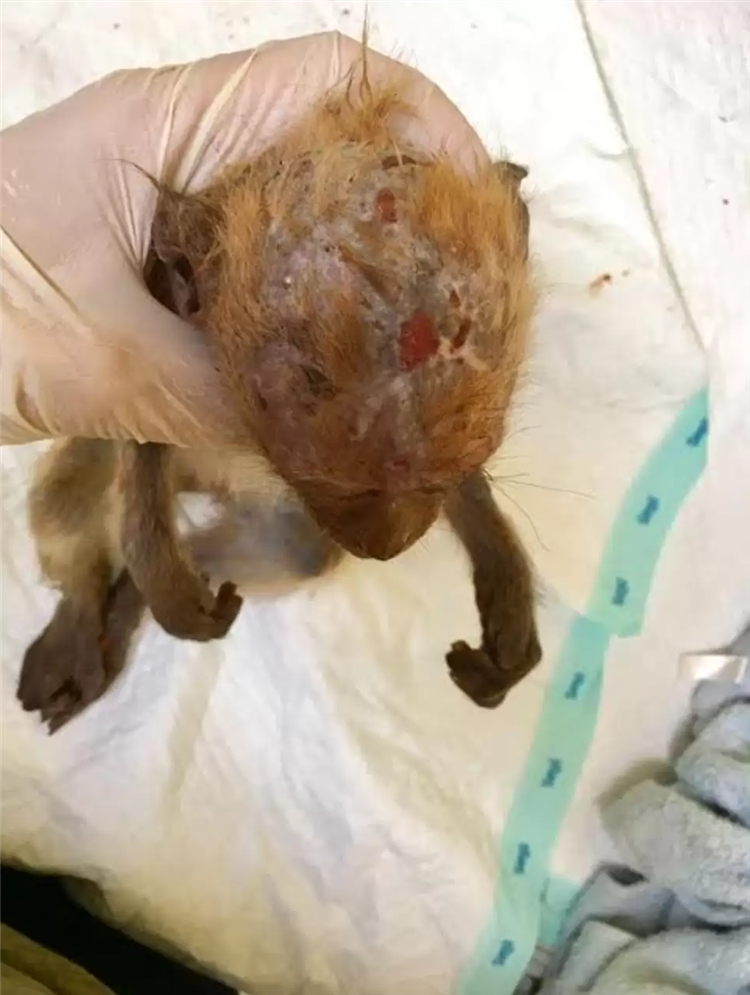
Like humans, macaques get baby teeth before their permanent adult set grows in — and the traffickers had only clipped their baby teeth.
“We’ll provide them with painkillers and medical care until their mouths are healed … and new teeth can grow,” Den Haas said.

While Ozzie, Olin and Oki were lucky to be rescued, other macaques still need help. Wild macaques are frequently stolen from the wild and sold into the pet trade, or used as “dancing monkeys” in the entertainment industry. They’re also hunted for food and traditional medicine, and even sold to scientific research facilities around the world to be test subjects.
To combat this issue, JAAN and other animal welfare groups are working tirelessly to rescue as many macaques as possible, and to encourage the Indonesian government to protect these animals.

